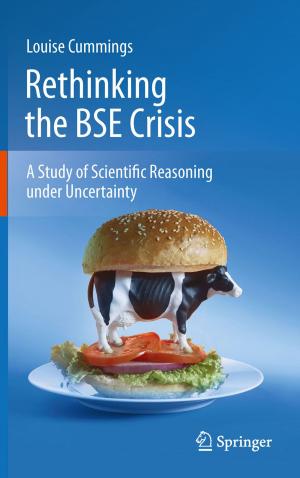The Ethical Challenges of Academic Administration
Nonfiction, Reference & Language, Education & Teaching, Higher Education, Religion & Spirituality, Philosophy, Ethics & Moral Philosophy| Author: | ISBN: | 9789048128419 | |
| Publisher: | Springer Netherlands | Publication: | September 18, 2009 |
| Imprint: | Springer | Language: | English |
| Author: | |
| ISBN: | 9789048128419 |
| Publisher: | Springer Netherlands |
| Publication: | September 18, 2009 |
| Imprint: | Springer |
| Language: | English |
This book is an invitation to academic administrators, at every level, to engage in reflection on the ethical dimensions of their working lives. Academics are very good at reflecting on the ethical issues in other professions but not so interested in reflecting on those in their own, including those faced by faculty and administrators. Yet it is a topic of great importance. Academic institutions are value-driven; hence virtually every decision made by an academic administrator has an ethical component with implications for students, faculty, the institution, and the broader community. Despite this, they receive little systematic preparation for this aspect of their professional lives when they take up administrative posts, especially when compared to, say, medical or legal training.
Surprisingly little has been written about the ethical challenges that academic administrators are likely to face. Most of the literature relating to academic administration focuses on “leadership” and draws heavily on management and social science theory. The importance of focusing on ethical deliberation and decision-making often goes unrecognized.
This book is an invitation to academic administrators, at every level, to engage in reflection on the ethical dimensions of their working lives. Academics are very good at reflecting on the ethical issues in other professions but not so interested in reflecting on those in their own, including those faced by faculty and administrators. Yet it is a topic of great importance. Academic institutions are value-driven; hence virtually every decision made by an academic administrator has an ethical component with implications for students, faculty, the institution, and the broader community. Despite this, they receive little systematic preparation for this aspect of their professional lives when they take up administrative posts, especially when compared to, say, medical or legal training.
Surprisingly little has been written about the ethical challenges that academic administrators are likely to face. Most of the literature relating to academic administration focuses on “leadership” and draws heavily on management and social science theory. The importance of focusing on ethical deliberation and decision-making often goes unrecognized.















